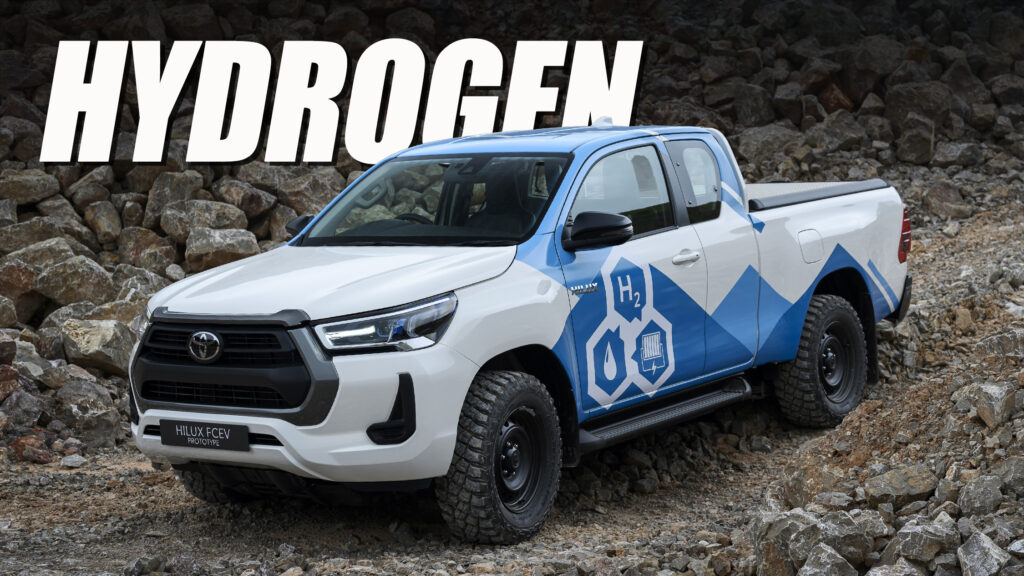- Toyota built 10 prototypes of the Hilux pickup with a Mirai-sourced FCEV powertrain.
- The system includes three hydrogen tanks, a fuel cell, a battery, and an electric motor moving the rear wheels.
- The new generation of FCEVs by Toyota is expected to hit the roads in 2026-2027, offering 20% more range at a lower cost.
Toyota has built 10 FCEV prototypes of the Hilux in Britain, moving to the demonstration phase of the project that evaluates the use of hydrogen fuel cells in a pickup. The powertrain, sourced from the Mirai, allows the Hilux to travel 600 km (373 miles) between refuelings, with zero tailpipe emissions and no reliance on the charging network.
The project was originally announced on December 2022, with the first prototype being unveiled in September 2023. Out of the 10 prototypes built by Toyota in Derby, UK, five will go through field testing, and another five will be used for customer and media demonstrations (including the 2024 Olympic and Paralympic Games in Paris).
More: Toyota Has Developed A New Combustion Engine That Will Fend Off EVs For Years To Come
The FCEV version of the pickup looks identical to the regular model, measuring 5,325 mm long in the extra-cab bodystyle. However, everything is different under the skin, with the old diesel giving way to a cleaner a more sophisticated powertrain.
A trio of high-pressure hydrogen tanks are integrated within the ladder frame chassis, with a total capacity of 7.8 kg (17.2 lbs). Under the hood there is a 330-cell polymer electrolyte fuel cell stack which produces energy, storing it in a lithium-ion battery positioned in the rear bed.
Toyota Europe
Finally, a single rear-mounted electric motor with 180 hp (134 kW / 182 PS) and 300 Nm (221 lb-ft) of torque is driving the rear wheels. Toyota says that the lightweight powertrain allows a higher payload and towing capacity compared to a heavier fully electric truck, while offering a longer range.
The Japanese carmaker is researching scalable fuel cell stacks and various shapes of hydrogen tanks to ensure compatibility across different vehicle types. Toyota‘s third generation of fuel cell technology, which is currently under development, is slated for application in production models by 2026 or 2027.
This new generation is expected to offer a 20 percent increase in range and reduce costs by more than a third, thanks to advancements in technology and increased production volumes.
FCEV powertrains are part of Toyota’s multi-pathway approach together with hybrids, PHEVs, BEVs, and ICE with e-fuels. The company expects Europe to be one of the largest markets for hydrogen fuel cell vehicles by 2030.















































